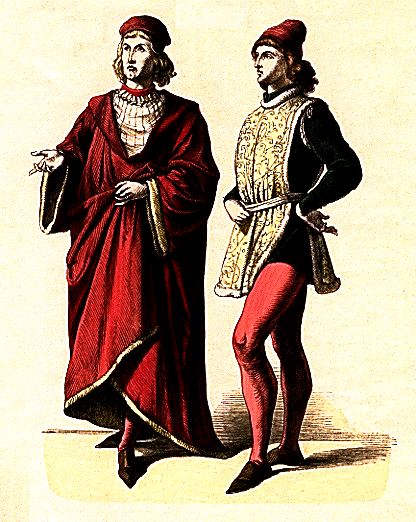Columbus, Part V

What were the larger intentions and the world impact of fifteenth-century European culture? The atrocities committed by Spain, England, Holland, and other European powers as they scattered over the globe in centuries that followed are clear. No one today defends them. But do we appreciate the currents within that culture that have led to the very universal principles by which, in retrospect, we criticize that behavior today? For example, it was in the fifteenth century that religious thinkers began some serious work trying to specify what European moral obligations were to the newly encountered peoples.
"One of the controversies from the Middle Ages that Columbus' voyage reignited," Robert Royal tells us, "was not whether the world was round (every educated person knew that), but whether people could exist at the antipodes (the ends of the Earth). Far from being the kind of idle speculation that some anti-medievalists associate with angels dancing on the heads of pins, this question had profound repercussions. Would God have created any people outside of all contact with the Old and New Testaments? One of the consequences of such a creation would be that the people would have been left without at least potential knowledge of what was needed for salvation. The problem arose, thus, not from ignorance, but from profound concern about the form of God's universal charity."
Bartolome de las Casas, the well-know defender of the Indians, was one of the people thinking deeply about this issue. Las Casas, who was the bishop of Chiapas, Mexico, where relations between mostly native populations and the central government remain dicey even today,  bent over backwards to understand local practices. He once even described human sacrifices as reflecting an authentic piety and that "even if cruel [they] were meticulous, delicate, and exquisite." Other missionaries learned native languages, recorded native beliefs. The information coming from the New World stimulated Francisco de la Vitoria, a Dominican theologian at the University of Salamanca in Spain, to develop principles of natural law that, in standard histories, are rightly given credit as the origin of modern international law. To read Vitoria on the Indies is to encounter an atmosphere closer to the U.N. Universal Declaration of Human Rights than to sinister Eurocentrism.
bent over backwards to understand local practices. He once even described human sacrifices as reflecting an authentic piety and that "even if cruel [they] were meticulous, delicate, and exquisite." Other missionaries learned native languages, recorded native beliefs. The information coming from the New World stimulated Francisco de la Vitoria, a Dominican theologian at the University of Salamanca in Spain, to develop principles of natural law that, in standard histories, are rightly given credit as the origin of modern international law. To read Vitoria on the Indies is to encounter an atmosphere closer to the U.N. Universal Declaration of Human Rights than to sinister Eurocentrism.
Las Casas and Vitoria influenced Pope Paul III to make a remarkable statement in his 1536 encyclical Sublimis Deus:
Indians and all other people who may later be discovered by the Christians are by no means to be deprived of their liberty or the possession of their property, even though they be outside the faith of Jesus Christ. . . .should the contrary happen it shall be null and of no effect. . . .By virtue of our apostolic authority we declare. . . that the said Indians and other peoples should be converted to the faith of Jesus Christ by preaching the word of God and by the example of good and holy living.
Next time: The Great Commission: Embarrassment or Engine of History?

0 Comments:
Post a Comment
<< Home